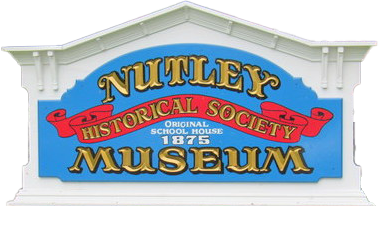Colonial era building served landowners and Women's Club and now Olde Towne Center landmark
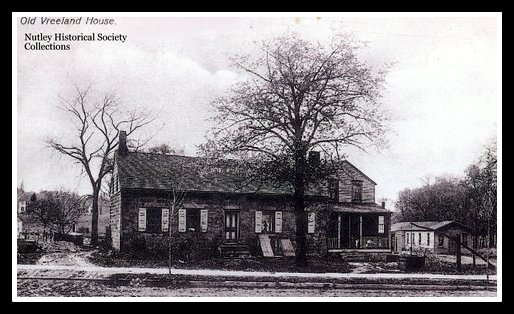
The Junior Woman's Club of Nutley used the house at 226 Chestnut Street for its functions from 1912 to 2012. The Vreeland House changed hands in May 2012 when the Junior Woman's Club of Nutley turned over the property to the township of Nutley, N.J. The Nutley Board of Commissioners placed oversight of the 200-plus year-old house in the hands of the Nutley Historical Society which will inventory the parts, parcel and frame the artifacts in the historical sense.
The Vreeland house was thought to have been built in 1702 and confiscated by the government during the Revolutionary War because the owners were Tories; however, recent findings do not support this. The house was most likely built in the mid-1700s, and all sales related to it seem to have been private transactions, with the Vreelands having possession from 1783 to the early 1900s.
John Demmer, Town Historian
Author: Images of America NUTLEY Page 108, Copyright © 1997
A Brief History, updated
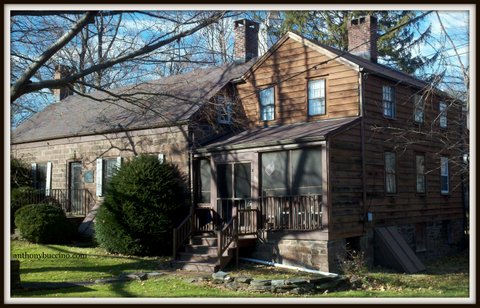
Most of us know this building as the Woman’s Club; after all, they’ve occupied it for the past hundred years. But did you know that it was originally built for the van Giesen family (the earliest Dutch planters in the area) more than 250 years ago? Its more well-known owners, the Vreeland family, obtained the property soon after the Revolutionary War. Its story comes down to us part fact, part lore. In either case, it is one of the jewels of Nutley.
Built of locally quarried brownstone, the home was originally thought to have been constructed for Bastien van Giesen by Jacob Vreeland, the first Vreeland to settle in this area and the man who built Bend View, the Vreeland estate on the banks of the Passaic River. Bend View was built in 1702, and because it was similar in style to the building at 226 Chestnut Street, it was assumed that Jacob built both homes. However, there is no record of any building on the Chestnut Street site during Bastien’s lifetime, and it is now thought that the building was constructed for his eldest son, Hendrick, soon after he inherited the property in 1751.
Tradition tells how the local authorities confiscated the property during the Revolutionary War from the Tory-sympathizing van Giesens who had fled across the Hudson River to the safety of New York. Local Revolutionary War hero captain Abraham Speer was said to have purchased the property from the authorities or even to have seized it himself.
In fact, the property was never confiscated, and there is record of its legal sale from Abraham van Giesen (Bastien’s youngest son who inherited the property from his brother) to Captain Speer in 1783. It is interesting to note that properties were confiscated by local authorities from an Abraham van Giesen Jr., of Stone House, Plains (today’s Brookdale section of Bloomfield), who did in fact join the British Army. It now seems certain that our Abraham van Giesen had become mixed up in local lore with the Tory van Giesen from Bloomfield.
Captain Speer promptly sold a 27-acre portion of the 80-acre estate, which by this time included the house, to John M. Vreeland, who was not only his brother-in-law but had served as a private in his company during the Revolution. (John’s mother, by the way, was a van Giesen.)
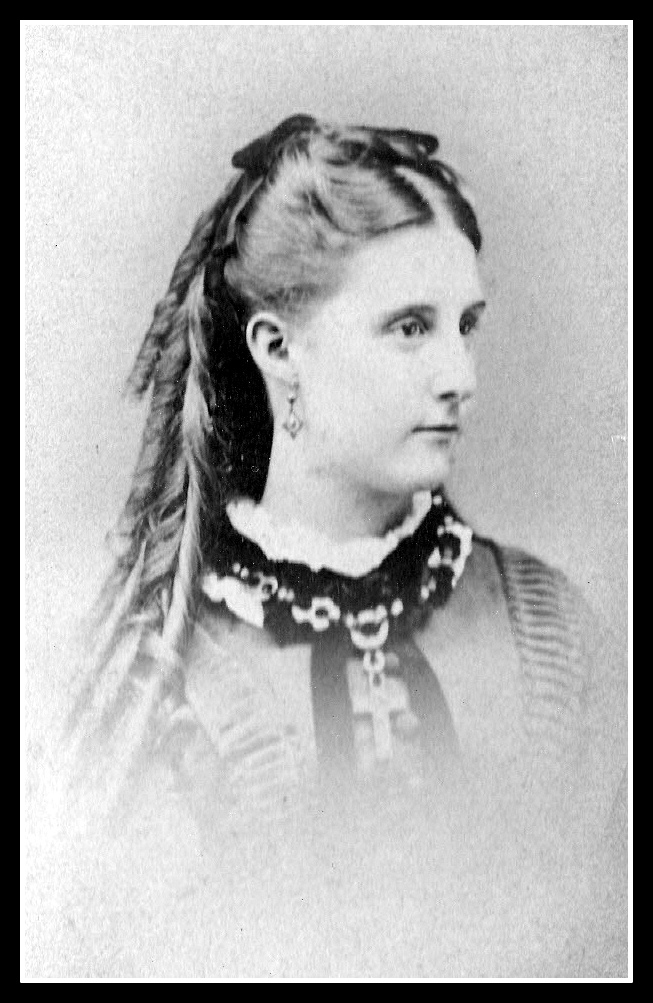
Warren Vreeland, the last direct male in the Nutley line, died in the home in 1909. In 1912, his daughter Laura Tuers leased the property to the Woman’s Club for meetings and social events. The club obtained full ownership in 1923. In 2012, after a hundred-year stewardship, the Woman’s Club sold the property to the township for one dollar.
A curious feature of the building is the grouping of letters and numbers etched into the brownstone flanking the front entrance: it is not known when they were added, but they are a late addition (the 1907 History of Nutley, for example, specifically states “the house bears no tablet”). Whoever added them meant to record the historical facts as far as they knew them to be true. Whatever their origin and regardless of their accuracy, here are the names and dates they refer to:
“AVG 1702” indicates the year Abraham van Giesen was assumed to have built the home.
“IVL 1783” indicates the year John Vreeland purchased the home from Captain Abraham Speer.
“AVL 1821” indicates the year Abraham Vreeland inherited the home from his father John.
“WVL 1883” indicates the year Warren Vreeland purchased the home from the estate of his uncle John Oldham.
Researched by John Simko, Museum Director, Nutley History, 2013
A Brief History
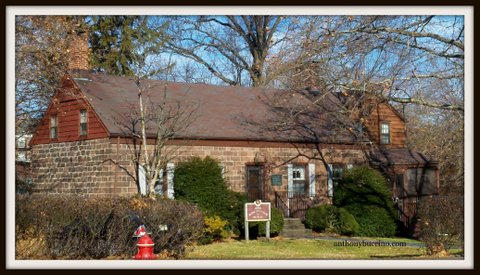
In 1912 a group of Nutley women, members of the Woman's Public School Auxiliary, the Nutley Improvement Association, the Woman's Garden Club and the Housewife's League, interested themselves in the preservation of a house on Chestnut Street, Nutley, NJ -- now known as Vreeland House -- as an historical landmark.
Thus, after two preliminary meetings, which were held to consider the formation of one large club, on March 19, 1912, the Woman's Club of Nutley was organized. They were welcomed into the New Jersey State Federation of Woman's Clubs on May 18, 1912.Thus, after two preliminary meetings, which were held to consider the formation of one large club, on March 19, 1912, the Woman's Club of Nutley was organized. They were welcomed into the New Jersey State Federation of Woman's Clubs on May 18, 1912.
Mrs. A. B. Proal was the Club's first president and served from 1912 to 1914. The next year, Mrs. George R. Philhower was elected to the Board of the State Federation as Recording Secretary, the first Nutley Woman's Club member to serve on the State Board. Many Nutley clubwomen have served on the 8th District and the NJSFWC boards and, since 1914, many members from the Woman's Club of Nutley have been added to the New Jersey State Honor Roll.
By 1919, all four former women's organizations had become departments of the Woman's Club of Nutley. The purpose of the Club is "to better civic conditions, to encourage cultural advancement, and to preserve Vreeland House as an historical landmark."
The Club uses the Vreeland House as its meeting place, with a General Club, Evening Membership Department, Junior Woman's Club and Sub-Junior Club, all sharing in the restoration and maintenance of the house.
On June 25, 1923, the final plans were drawn up for ownership, and the Woman's Club of Nutley purchased the Vreeland House from Mrs. Laura Vreeland Tuers. When the Club had restoration work done on the building, the original hand-hewn timber of the roof and ceiling were exposed, showing the wooden pegs and the old trusses of the roof.
The house was built in 1702 by Abran VanGieson. Since VanGieson was a Tory, his land and house were confiscated after the Revolutionary War and were bought by Captain John Speer, a Patriot. He sold the little Dutch homestead to John Vreeland and the house remained in the Vreeland family until the 1900's.
Vreeland House is an excellent example of the solidity and simplicity of the Dutch colonial period and is the oldest surviving house in constant use in Nutley. Its thick brown sandstone construction material was quarried and cut from the banks of the nearby Passaic River. A framed square on a wall of the house shows the mixture of the building material composed of local clay and straw taken from the banks of the stream, which runs alongside the house property.
Through the efforts of the first group of the members of the Nutley Woman's Club, the Nutley Public Library was begun. From the front door of the Clubhouse, members can see our Nutley Free Public Library.
In the Spring of 1922 the Woman's Club of Nutley contributed $25.00, in conjunction with contributions from other Federated Women's Clubs in New Jersey, toward the establishment of the New Jersey College for Women (Douglass College). This was the first of many whole and part awards financed by the Woman's Club of Nutley in cooperation with our NJSFWC.
Since the beginnings of the Club in 1912, many women have walked through the doors of our Clubhouse and taken part in the continuing goals of the Club "to make a better world for all." The heritage of past activities continues to lead and inspire us in our present and future activities.
Researched by Isabel Sargent of the Woman's Club of Nutley, December 1989, for the General Federation of Woman's Clubs, Women's History and Resource Center, Washington, DC in Centennial Year of GFWC, July 1990
